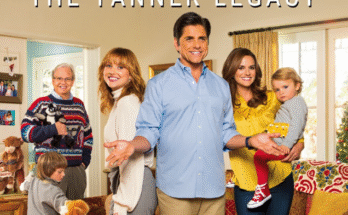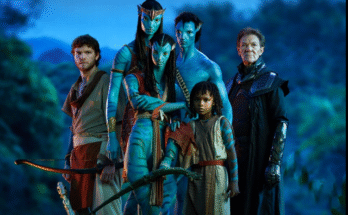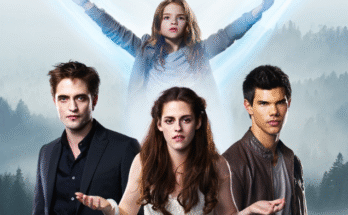Zombie films are a dime a dozen, but Extinction (2015) takes a different path. Directed by Miguel Ángel Vivas, this Spanish-American horror-drama isn’t content with gore and jump scares — it strips the genre down to its bare bones, asking what happens when the end of the world drags on, when survival becomes routine, and when the only monsters left may be the people themselves.
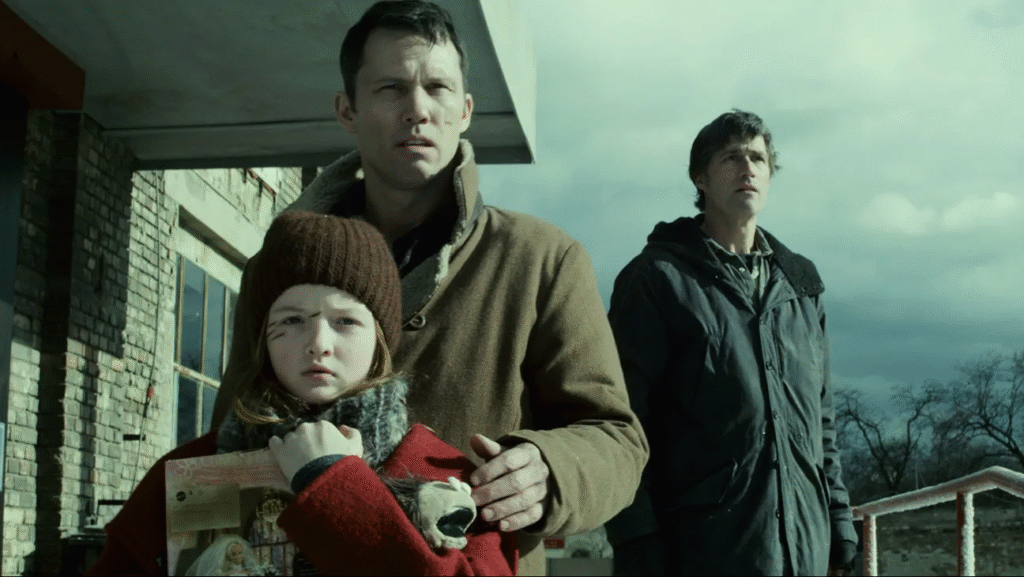
The film begins years after a viral outbreak has turned much of humanity into savage, zombie-like creatures. But unlike most apocalyptic tales, this one unfolds in a frozen wasteland, where snow buries the ruins of civilization and silence hangs heavier than screams. Amid this icy hellscape, three survivors eke out a fragile existence: Patrick (Matthew Fox), Jack (Jeffrey Donovan), and young Lu (Quinn McColgan).
The brilliance of Extinction lies in its intimacy. Instead of sprawling chaos, the focus narrows to a fractured family unit. Patrick and Jack, once friends, now live in bitter isolation from one another, their houses divided by both distance and resentment. The cause of their animosity slowly unravels, tied to love, betrayal, and loss during the outbreak’s earliest days.
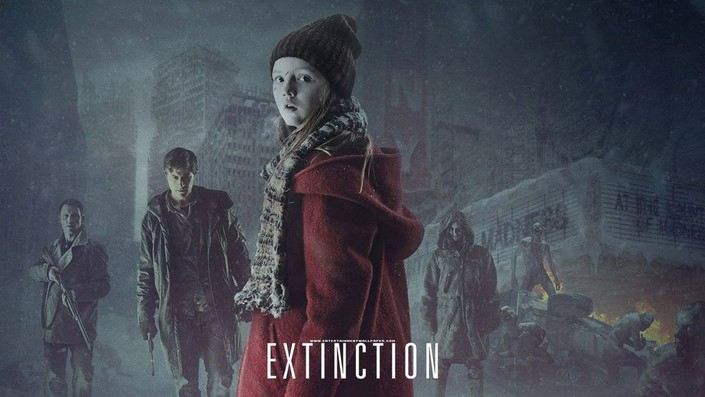
Matthew Fox delivers a raw, intense performance as Patrick, a man hardened by guilt and grief, while Jeffrey Donovan brings quiet gravity to Jack, a protector consumed by responsibility. Their fragile dynamic — two men bound by survival yet torn apart by history — is as tense as any zombie encounter. Quinn McColgan’s Lu, meanwhile, provides the heart of the story, her innocence a fragile spark against the cold brutality of the world.
The zombies (here called “the infected”) are feral, terrifying, and fast. But they are used sparingly, emerging in bursts of violence that punctuate long stretches of brooding quiet. This restraint amplifies the tension: the silence of snow-draped streets is as chilling as any monster. When attacks come, they are sudden, brutal, and claustrophobic — survival is never guaranteed.
Visually, the film is stark and haunting. White landscapes swallow everything, contrasting with the darkness inside the characters’ homes and hearts. The snow isn’t just scenery — it’s a metaphor for emotional isolation, burying the past while also freezing the present in grief.
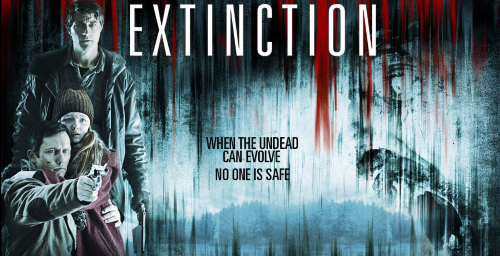
The score is subdued, leaning on atmospheric tones that echo loneliness more than terror. In fact, silence becomes one of the film’s most powerful tools, allowing every footstep, breath, or distant shriek to reverberate with dread.
At its core, Extinction is less about the infected and more about redemption. It’s about fractured relationships, the weight of past mistakes, and whether forgiveness can exist at the end of the world. The climax forces Patrick and Jack to confront both the monsters outside and the bitterness inside, leading to choices that are both heartbreaking and cathartic.
Where most zombie films chase spectacle, Extinction embraces humanity. It asks what it means to live when survival isn’t enough, when guilt won’t thaw, and when the hope of connection is the only thing keeping the cold at bay.
In the end, Extinction is not a crowd-pleaser. It is quiet, mournful, and sometimes mercilessly slow. But that’s its power: it doesn’t glorify the apocalypse — it mourns it. And in doing so, it stands out as one of the more haunting, underrated entries in modern zombie cinema.

